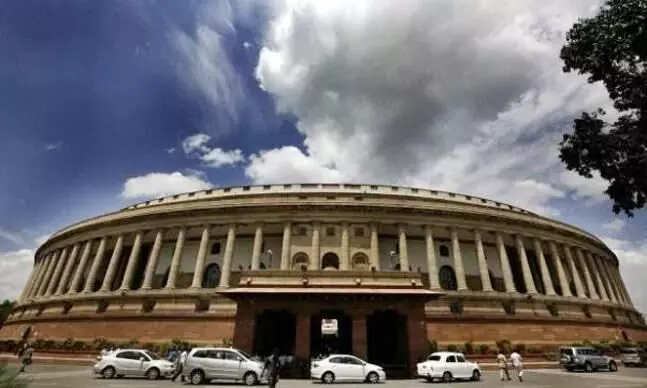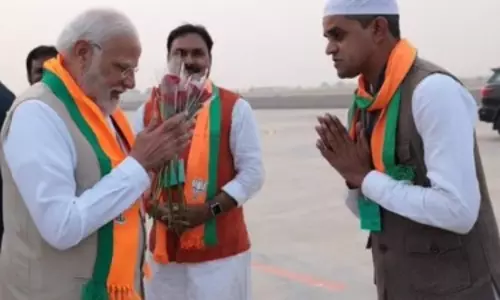

Lok Sabha passes bill to restore states' power to identify SEBCs
text_fieldsThe Lok Sabha has passed the 127th Constitutional Amendment Bill 2021 to restore the power of State Governments to identify and specify Socially and Economically Backward Classes(SEBCs) with 385 Ayes and zero Noes on Tuesday.
Replying to the debate on the Amendment) Bill, Social Justice and Empowerment Minister Virendra Kumar said that there is a need for careful examination of the demand made by several Lok Sabha members for increasing the cap of reservation beyond 50% as constitutional issues are involved.
The Minister said that several members have expressed their views on raising the reservation cap, which was fixed 30 years ago.
"The government is aware of the wishes of the members.and is also of the view that the ceiling of 50% should be discussed. But the Supreme Court has always stood by the ceiling limit. We should also look at the judicial scrutiny", the Minister added.
Kumar also thanked every member for supporting the Bill. On Maratha reservation, he said that as it is State subject, with this Bill, we have empowered the Maharashtra government to implement the quota.
Lauding DMK member T.R. Baalu's speech on the issue, he added that whether it is Periyar, Anna, Ambedkar, Lohia or Deen Dayal Uphadhyay, they might have taken different paths, but all sought upliftment of the marginalised.
He also reminded that the National Front implemented the Mandal Commission Report, and the BJP was supporting that government.
It was on May 5th, a Constitution Bench of the Supreme Court held by 3:2 majority that States lacked the power to identify and specify SEBCs after the 102nd Constitutional Amendment, and that such power was with the President of India.
The Supreme Court's majority verdict was against the stand taken by the Union Government that the 102nd Constitutional Amendment did not affect the power of the states. The review petition filed by the Union Government seeking a review of the judicial interpretation given to the 102nd amendment was also dismissed.
Following that, the Union government has now introduced this bill. The bill proposes to amend Article 342A to state that the power of the President is to specify the socially and educationally backward classes in the Union List for the purposes of the Union Government. This is in line with the argument made by the Attorney General for India in the Maratha quota case that the power of President is only to specify SEBCs for the purposes of Union List.
The amendment also proposes to add clause (3) to Article 342A, which clarify that states and union territories will have the power to identify and specify SEBCs for their own purposes and that such list may differ from the Union list.
The proposed clause reads as : "Notwithstanding anything contained in clauses (1) and (2), every State or Union territory may, by law, prepare and maintain, for its own purposes, a list of socially and educationally backward classes, entries in which may be different from the Central List".
The Union government said that this clarification was necessary to maintain the "federal structure" of the country.
"In order to adequately clarify that the State Government and Union territories are empowered to prepare and maintain their own State List/ Union territory List of SEBCs and with a view to maintain the federal structure of this country, there is a need to amend article 342A and make consequential amendments in articles 338B and 366 of the Constitution", the statement of objects and reasons of the bill stated.






















